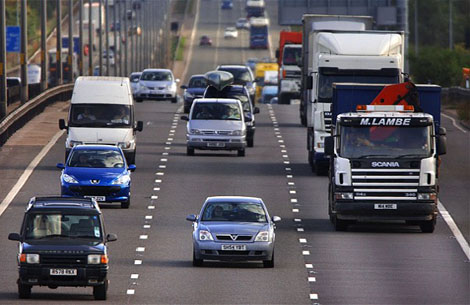
Removing White Lines For Road Safety?
Road Safety GB -
White lines could be removed from busy roads across the country in an attempt to decrease the speed of motorists (Telegraph).
The Telegraph reports that highway chiefs have concluded that unmarked roads introduce a sense of uncertainty that prompts motorists to drive more cautiously, especially when faced with oncoming traffic.
In recent months, Transport for London (TfL) has removed the lines on parts of the A22 and A23 in south London and the A100 in central London. TfL has told The Times that this may now be expanded to other roads.
There are also plans to pilot the scheme in north Norfolk while trials have taken place in parts of Wiltshire and Derby.
The Telegraph report points to research which shows removing the central white line, a feature of British roads for almost 100 years, can reduce the average speed of a vehicle by 13%.
Road Safety GB has suggested the idea be treated with caution, saying that different solutions are required for different situations.
Iain Temperton, Road Safety GB director of communications, said: "There is no single solution to highway design.
"Every solution must be based upon evidence and current best practice. While on some occasions that might involve the removal of markings or street furniture there will be other situations where this would exacerbate the problem. There is no one answer to casualty reduction."
Commenting on TfL’s decision to remove white lines from busy roads, Nicholas Lyes, RAC public affairs manager, said: “There may be some areas where there's a benefit but a lot where the disadvantages outweigh any potential benefits.
“And their removal would also likely lead to an increased ‘fear factor’ of driving and accidents for the majority of motorists who take confidence from clear road markings.
“It feels instinctive that white line road markings an essential feature keeping our roads safe and lanes clearly defined in both daylight and the hours of darkness.
“And we must not forget the development of cat’s eyes in the 1930s has been universally heralded as one of the greatest road safety improvements of all time used all over the world.”
Perhaps unsurprisingly, the Road Safety Markings Association (RSMA) has come out strongly against the idea, referring to it as "misplaced, misleading and ... fatally flawed".? ?George Lee, chief executive of the RSMA, said: "There is little or no proof that removing road markings makes roads safer or that drivers confused by a lack of clear guidance are somehow safer drivers."







